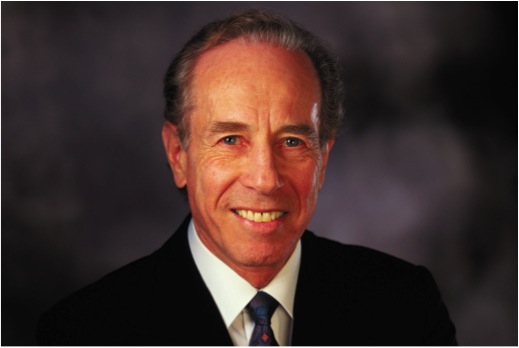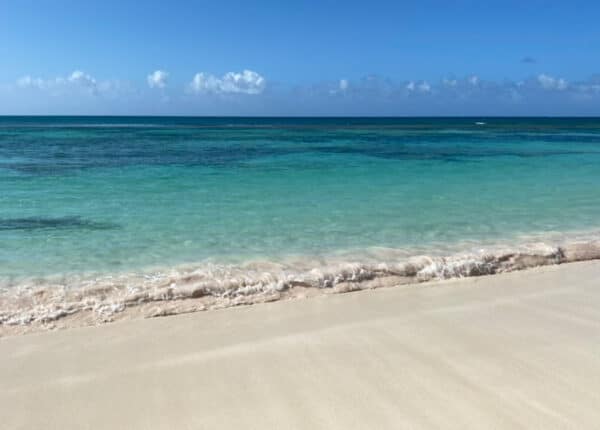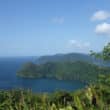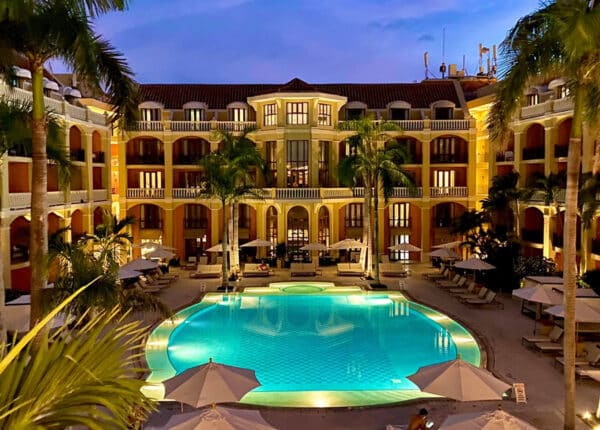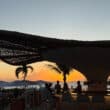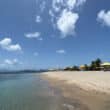Isadore Sharp, Founder of Four Seasons, on the Caribbean, Social Media and the Future
Above: Isadore Sharp (Photo: Four Seasons)
By Alexander Britell
In 1961, Isadore Sharp was a neophyte in the hospitality industry who had just opened his first property in Toronto. Fifty years later, the company he founded and built, Four Seasons, is at the top of the global luxury hotel industry, with hotels across the world, including the Caribbean, where Sharp’s idea to build a resort in Nevis changed the face of that island and the standard of Caribbean hotels, something covered extensively in his book, Four Seasons. Caribbean Journal talked to Sharp about his work in Nevis, how the hotel industry has changed, and the future of Four Seasons.
When you first came to Nevis more than twenty years ago, did you imagine the way the resort would have developed?
Well, yes – because it was an untouched island. And part of the problem with the whole Caribbean area was it had built up a sort of militancy – the service, the attitude in many of the hotels in the Caribbean, had really deteriorated. And here we had an opportunity on an island that had not yet seen change. It was all natural, good-humoured, good-natured people. So we thought that we could create a Four Seasons experience on the island, and make Nevis a destination that was an unheard-of island. If you asked people back then, if you mentioned Nevis they would not even know it was an island in the Caribbean. So we saw it as an opportunity to do something and be quite different. And that’s really what happened. I recall that for Nevisians, there was very little work on the island. It had sort of lost its population because of that, and most of the people on the island didn’t have work. So it became our job to train, to give them an idea of an approach to the type of service that we would expect, and they rose to the occasion. When the hotel opened, they were able to do their work in a manner which was very pleasant to their customers, the experience that you get at a Four Seasons, and it worked. So that was the purpose of going to Nevis.
What kind of impact do you think it had on the resort industry in the Caribbean?
Well it certainly brought the spotlight to Nevis. If we could do that here – then wasn’t it possible that maybe other places could open up in the same way. When you talk about the hotel and the impact it had, it’s really about the impact it had on Nevis. It was dramatic – in terms of employment, the resurgence of the island, of the little cottage industries that rose up because of it, the government. We were the main source of income for the government, so as a result, roads were created, people’s houses were built. The money that people earned was put to good use, and they really brought the money back to their families. It improved their homes, their clothing – it improved the general lifestyle of the island.
Is there something the Caribbean hotel industry could be doing that it isn’t at the moment?
I think the industry is doing it – the industry has really improved over the generation that we’ve been involved. It became more knowledgeable, capable, in marketing and building new facilities. The standards of the facilities have changed dramatically. What was good enough for maybe a mid-range hotel in the 1980s, is not good enough here in 2011. So the physical standard of all hotels has risen, and I guess we were responsible for that, to do something. Over the years, we’ve initiated or innovated many, many ideas that have now been adopted in the industry as the norm – if you go back to 1961, we were the first company to put shampoo in the bathroom – thinking about the customer’s perspective. I didn’t know anything about the hotel business – my approach to it was really from a customer’s perspective – what would a customer consider to be useful and of value? So that idea has become the strategy of the company to this day. Whatever we’re doing, whenever we’re building and operating, there’s always a consideration of, is this something the customer is going to benefit from. So I think that’s really what happened, and what we did in Nevis. It showed the industry that you really can go in and build facilities and create a destination. We’ve done it in Costa Rica, in Punta Mita, Mexico. So you create a better facility, you develop the work environment that makes the customers’ experience very special.
When I was [at the hotel in Nevis], I was ordering room service. [The hotel] is stretched out over a mile, so the kitchen is quite a distance away. The young lady who was setting up the room service on the balcony did it perfectly. I said, you’ve done this very well, where did you work before? She said, “I’ve never worked before – this is my first job.” And I said, how did you learn – you’ve done this very well?” And she said, “they allowed me to take all the equipment home so I could practice on the side.” This was the secret, and the credit goes to John Stauss, who really put in place the training method that allowed 500 Nevisians to literally learn a profession, and do it with such competence and with an attitude of, when you’re here, you get that.
How has the downturn changed the hotel industry?
Well, it knocked the wind out of everybody’s sails, but I don’t think it’s changed it. Everybody’s gotten a little more efficient, downsized a bit. People tend to manage their businesses a lot more efficiently, but it’s not the first time. The worst the industry encountered is the duration that it’s taken. But we’ve gone through things that occurred that hurt the industry, like 9/11, the Gulf War was another one, and the normal recessions that have happened in every economic cycle.
What have been the biggest developments in hospitality over the last few or so?
I think customers’ expectations have risen. Technology is, of course, playing a big role in how we operate and manage the market. Social media is a really major force in how we can communicate, so I feel the customers are still coming to hotels and resorts and looking for that overall experience that they’ve come to expect at the five-star level, which is a complete experience. Years ago, there were some hotels that might have had a spa. Today, every hotel has a spa — the same way those things have become a normal standard in the industry. So the facilities in all hotels have improved. Because of that, when we build a new hotel we’re trying to learn from what we’ve already done. But there are little things – very small tweaks. The biggest impact that came recently was the flat-screen TV, which creates a much leaner way of designing a hotel room.
Where do you see Four Seasons in 10 years?
Well, we have a very robust pipeline – well over 55 hotels that are in one form of development or another. So over the next 10 years, we could almost double the number of hotels that we will be operating. And as we get bigger, I think we’re also getting a better understanding of what future hotels will have to do – what I call the next generation of five-star hotels. They will embody everything that we’ve learned and have adapted to the customers’ expectations. So the look of Four Seasons – if you look at the type of facilities we have now worldwide – the Seychelles, Hong Kong, London, New York, the standard of the physical property will have improved. So if you put up a montage of Four Seasons, it will be a pretty spectacular picture that I don’t think any other company will be able to display. So we understand what the customers come to Four Seasons for – the memorable experience which really is delivered through the employees. The physical product becomes an accepted standard. People expect the physical product to be the latest in architectural décor and aesthetics. So the facilities are going to keep improving, so I think Four Seasons for the future will be, we hope, the leader at the top end of the upper-level luxury five-star concept.

